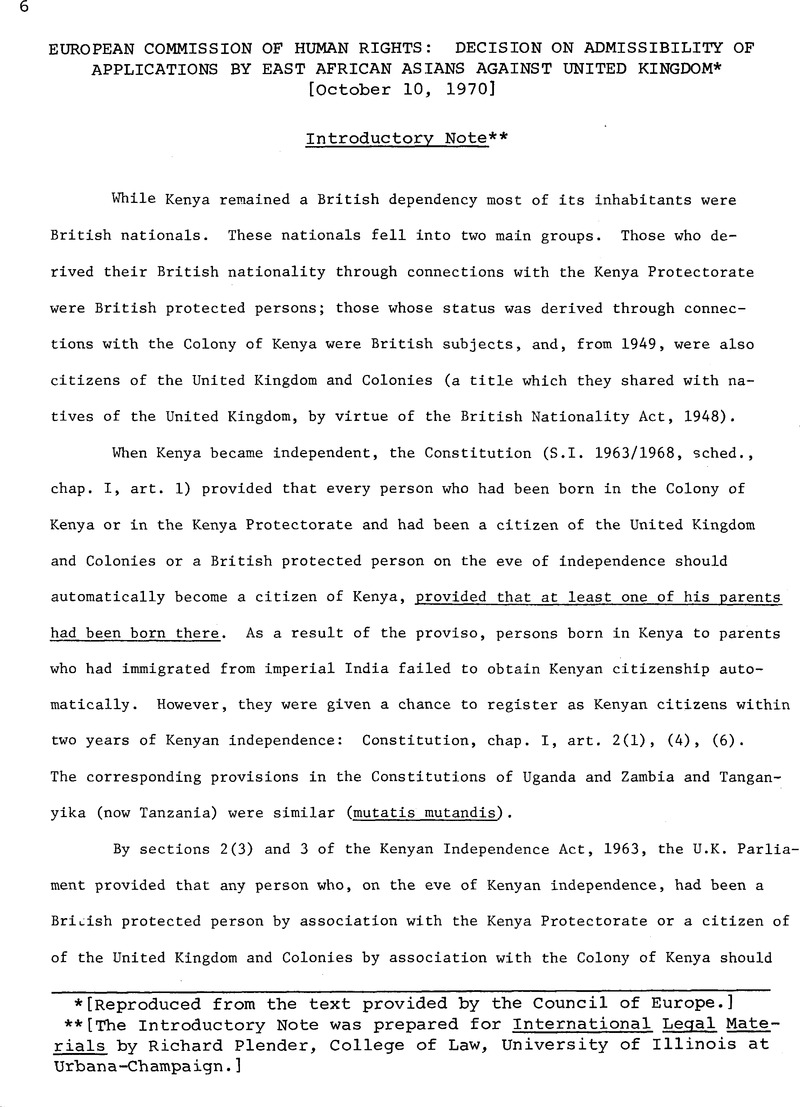Published online by Cambridge University Press: 18 May 2017

[Reproduced from the text provided by the Council of Europe.]
** [The Introductory Note was prepared for International Legal Materials by Richard Plender, College of Law, University of Illinois at Urbana-Champaign.]
(1) Referring to those applicants, namely Mr. N. D. Shah (4410/70), Mr.’ L. Rawal (4411/70), Mr. H. K. Gurjar (4414/70) Miss C. S. S. Barot (4476/70) and Mr..B. M. Barot (4477/70). who were not citizens of the United Kingdom and Colonies but British protected persons, the respondent Government stated that a British protected person is a person born, or whose father was horns in a British Protectorate, or who is the subject of a British Protected State. A British protected person is not a citizen of the United Kingdom and Colonies; in order to acquire that status he has to apply for naturalisation. However, by. virtue of section 1 (.4) of the 1962 Act, Part I of that Act applies to British protected persons as it applies to“Commonwealth citizens, and these applicants, even though not citizens of the United Kingdom and Colonies, fall within a category the members of which are eligible to participate in the special voucher scheme described below.
(1) The Government subsequently stated that the applicants Raj Kumar Dhunna (Application No. 4423/70), Vinod Dhanji Patel (Application No. 4420/70) and Arvin Patel (4421/70) had been given permission to remain permanently in the United Kingdom. By letters of 30th July? 1970 VinodL Dhanji Patel and Arvin Patel stated that they did not wish to maintain their applications before the Commission, and these two cases were struck off the Commission's list on 5th October, 1970.